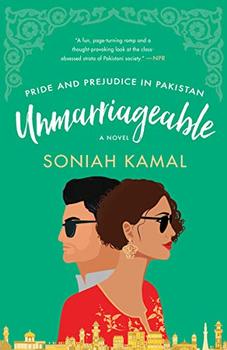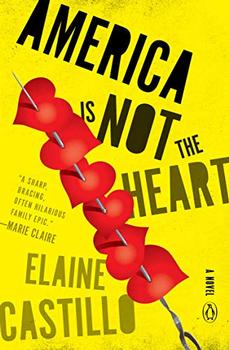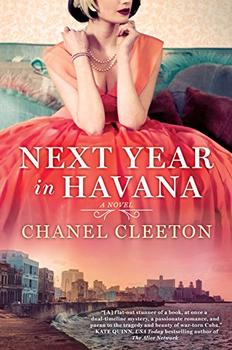Summary | Excerpt | Reviews | Beyond the book | Read-Alikes | Genres & Themes | Author Bio

Soniah Kamal makes no secret of the fact that her novel Unmarriageable is a retelling of Jane Austen's classic Pride and Prejudice. In a particularly tongue-in-cheek opening scene, Kamal's protagonist - Alysba Binat - is leading her students at an English-language school in the small Pakistani town of Dilipabad through an exercise in which they rewrite Austen's famous opening line to reflect their own culture and experience. Ironically, Alys' lesson is sidetracked when one of her teenage students announces to the other girls in the class that she's just gotten engaged, a not-uncommon occurrence that is certain to derail this young woman's education. Alys, who loves teaching and, at the ripe old age of thirty is seen as a spinster by her students, has come to terms with the fact that she will likely never marry - she only wishes that the bright young women she teaches would finish their education before pursuing their own happy ending.
Though Alys is not in want of a husband for herself, her mother has certainly not given up on the prospect of finding good matches for all of her five daughters. The Binat family were once well regarded, and any of the Binat daughters - including Alys - would have been considered a catch. But family scandal, betrayal and disgrace have landed the Binats in the backwater of Dilipabad for nearly a decade, and Alys and her older sister Jena find themselves as career women (Jena less happily so), while Mari follows her Muslim faith with ever-increasing fervor, and aspiring cartoonist Qitty willfully ignores her mother's appeals to lose a few pounds. Only flirtatious youngest daughter Lady openly speaks of her own desire to make a good love match with an attractive and wealthy young man.
But when the family receives a rather surprising invitation to what's sure to be the wedding of the year, Mrs. Binat is convinced that her daughters' fortunes are about to change. At the event, wealthy bachelor Fahad Bingla (known to all as Bungles) demonstrates immediate attraction to the beautiful Jena, much to the chagrin of his ostentatious sisters, Hammy and Sammy. But Alys is put off by Bungles' friend Valentine Darsee, who quite obviously finds the entire Binat clan embarrassing and beneath him.
If you're a fan of Jane Austen, you can clearly see what Kamal is doing here - particularly when it comes to characters' names; the parallels between her narrative and Austen's are striking (perhaps even occasionally groan-inducing). But Unmarriageable is far more than a connect-the-dots retelling of Pride and Prejudice with 2001 Pakistan standing in for Regency England and shalwar khameez substituted for corsets and petticoats. At times, Kamal ratchets up the satire even more than Austen would or could have dared - such as making Bungles the head of a feminine products fortune, or making Mrs. Binat's desperation both hilarious and heart-rending.
In between the moments of broad humor, Kamal offers many moments of real insight into a culture where class, reputation and marriageability continue to be paramount considerations well into the 21st century, even as she provides many examples of women, in particular, who are finding their own niches in which to change the conversation. Alys' aunt, for example, has transformed a talent for cake decorating into a profitable business. Alys herself is entirely believable as a woman fulfilled by her friends and career, not just by her eventual romance; and her attraction to Darsee is, in many ways, fueled by his prompting her to appreciate the women writers from her own country, not just those from England. Even the novel's title offers opportunities for playfulness and revelations, as readers eventually come to see that the unmarriageable character to whom the title refers might not be Alys after all. Unmarriageable will, perhaps, be most appreciated by those who already know and love Austen's original novel. But even those for whom Pride and Prejudice is unfamiliar (or a distant memory) will find plenty of humor, insight and romance in Kamal's South Asian–inflected version.
![]() This review was originally published in The BookBrowse Review in February 2019, and has been updated for the
February 2020 edition.
Click here to go to this issue.
This review was originally published in The BookBrowse Review in February 2019, and has been updated for the
February 2020 edition.
Click here to go to this issue.

If you liked Unmarriageable, try these:

by Elaine Castillo
Published 2019
With exuberance, grit, and sly tenderness, here is a family saga; an origin story; a romance; a narrative of two nations and the people who leave one home to grasp at another.

by Chanel Cleeton
Published 2018
After the death of her beloved grandmother, a Cuban-American woman travels to Havana, where she discovers the roots of her identity--and unearths a family secret hidden since the revolution...
Your guide toexceptional books
BookBrowse seeks out and recommends the best in contemporary fiction and nonfiction—books that not only engage and entertain but also deepen our understanding of ourselves and the world around us.